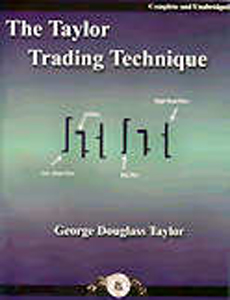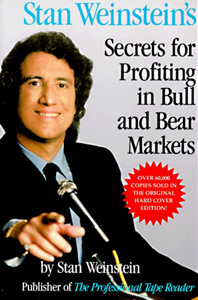Elders
Elders (ELD) has developed core rural and automotive businesses organically and through acquisitions. Some businesses have recently been divested and the company is now shifting its focus towards its Rural Services business. Some of FCL's businesses are held through associate or JV companies (for example, Rural Bank). ELD was listed on the Australian stockmarket on 30 June, 1981.
It may be a season to be jolly after all for Elders (ELD) shareholders as it reported profit improvements for the first two months of its fiscal year after declaring a $395 million loss in the previous year that caused them to sell its forestry assets.
Adelaide-based rural services and automotive group Elders (ELD) is still keeping a positive outlook after declaring a $395.4 million annual loss for the year to September 2011.
From the company's $217.6 million loss during the previous period to this year's bigger loss, Elders forestry assets are now being sold off after contributing $335.4m of this year's deficit. $64.6m of the deficit came from other non-recurring items and discontinued operations.
With a $14.6 million loss in the first half, agribusiness company Elders (ELD) has downgraded its underlying profit forecast for the full year.
For the six months to end of March, Elders booked a similar $165.9 million loss from the previous corresponding period. Without one-off items, first-half underlying profit was $1 million, an increase from the previous period loss of $2.4 million.
Peruse the dividend history for Elders Limited. A taxable payment declared by a company's board of directors and given to its shareholders out of the company's current or retained earnings, usually quarterly. Dividends are usually given as cash (cash dividend), but they can also take the form of stock (stock dividend) or other property. Dividends provide an incentive to own stock in stable companies even if they are not experiencing much growth. Companies are not required to pay dividends.
Australia based Elders (ELD), the company which focuses on core rural and automotive operations saw its market capitalisation reducing to half based on the news of an impending loss for the year to September 30. Malcolm Jackman, the chief executive of the company has announced yesterday that the company may post a loss within the range of $8 million and $14 million for the year where less than a month ago he informed the investors that the turnaround of the company was right on track.
iSOFT Group Limited (ISF), a company that is involved in the business of supplying software and IT solutions to healthcare providers was the worst performer in the ASX200 list for the week. The company had a market capitalisation of $254.3 million and lost 26.9 percent to its stock price closing for the week at 25 cents. These stocks traded for 34 cents a week earlier.
Energy Resources of Australia (ERA), one of the major producers of Uranium of the international market was the worst performer in the ASX200 list for the 14th week. The company had a market capitalisation of $3376.1 million and lost 9.3 percent to its stock price and was closed for the week at $17.70. The ERA stocks were traded at $19.51 during the last week.
Energy Resources of Australia (ERA), one of the primary producers of Uranium of the world was the worst performer of the ASX100 list for the 12th week of 2010. The company lost 5.9 percent or $1.20 to its stock price and was closed for the week at $18.90.
Babcock & Brown Infrastructure Group (BBI), a company that focuses in the business of acquisition, management and operation of quality infrastructure assets in Australia and in the international arena was the worst performer in the Australian Stock Exchange for the week that lost 20.8 percent to its stock price closing the week at 4 cents. The company closed at 5 cents in the previous week. The market capitalisation of Babcock & Brown was $108.9 million.
- How to Trade Forex and Gold Options
- How to Trade the Gold Price and Profit!
- Forex Trading the EUR/USD Pair € EURO and $ US Dollar
- How to Trade Stock Market Indices S&P500
- How to Trade Crude Oil
- Forex Trading Psychology
- What Are Broker Recommendations?
- Free Tickets to Trading & Investing Seminar & Expo ($18) Brisbane 2013
- Stock Calc App
- All About Warrants
- Introduction to Exchange Traded Funds
- Introduction to Exchange Traded Funds: Features
- Introduction to Exchange Traded Funds: Domestic ETFs
- Introduction to Exchange Traded Funds: International ETFs
- Exchange Traded Commodities
- Australian Stock Scan
- Australian Online Share Trading
- List of Trading Books
- Interesting Thoughts about the Australian Dollar
- What's the Meaning of Hawkish?
- Do You Know How To Use the P/E Ratio
- Trading, Religion and Politics - Do They Have Anything in Common?
- Shares that are Volatile that Double and Half in the Short Term
- Telstra (TLS) T3
- Margin Call by E-mail
- The Cost of Holding a Position
- Lack of Disclosure: Compensation from ASX Listed Company
- Unrealistic Returns and Benchmarks
- CMC Markets Down
- Quality versus Quantity Forex Trading
- Woolworths 1H Sales $30.7bn up 3.2%
Date added 31-01-2013 - ASIC Fines CommBank's CommSec
Date added 25-09-2012 - Industry Super Network Calls to Ban High Frequency Trading (HFT)
Date added 22-09-2012 - NAB Launches Online Share Trading Platform
Date added 19-09-2012 - Reserve Bank of Australia Says 23 Countries Holding AUD
Date added 18-09-2012 - Australia Post Digital Mailbox
Date added 10-09-2012 - Winners and Losers of Trading for Week 2
Date added 16-01-2012 - 2012's First Week of the Best and Worst Traded Stocks
Date added 09-01-2012 - 2011's Last Best and Worst Traded Stocks
Date added 05-01-2012 - Best and Worst Pre-Christmas Traded Stocks
Date added 30-12-2011 - Trading Winners and Losers for Dec. 12-16
Date added 19-12-2011 - Best and Worst Traded Stocks for Dec. 5-9
Date added 13-12-2011 - Top 3 Best and Worst Traded Stocks
Date added 05-12-2011 - ASX Glitch Trading Halt
Date added 27-10-2011 - Worst Trade Stocks (and the Best)
Date added 06-08-2011
Top 150 Public Companies Listed on the Australian Stockmarket as at 29/05/2009
- BHP Billiton
- Westpac Banking Corporation (WBC)
- Commonwealth Bank of Australia (CBA)
- National Australia Bank (NAB)
- Telstra (TLS)
- ANZ
- News Corporation (NWS)
- Woolworths Limited(WOW)
- Woodside Petroleum Limited (WPL)
- Rio Tinto
- Westfield Group (WDC)
- Westfarmers Limited (WES)
- QBE Insurance
- CSL
- Newcrest Mining Limited (NCM)
- Origin Energy Limited (ORG)
- Santos Limited (STO)
- AMP Limited (AMP)
- Macquarie Group (MQG)
- Foster’s Group Limited (FGL)




